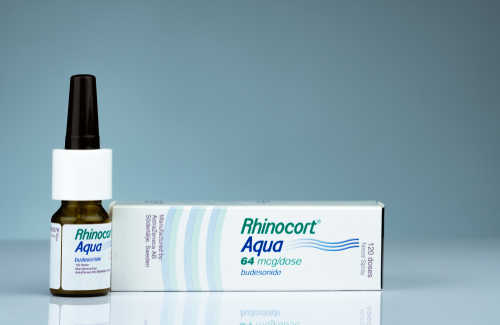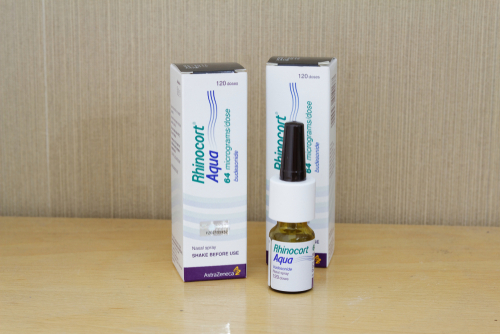What is Rhinocort?
Rhinocort is an effective nasal spray. The active component of the medication, Budesonide, belongs to a group or corticosteroids and works preventing the production of dangerous body substances that cause inflammation. The medication is commonly prescribed to patients, who have unpleasant symptoms that occurred as a result of a year-round or seasonal allergy. The most frequent symptoms of such conditions include sneezing, runny nose and congestion. Additionally, Rhinocort is administered as a preventative medication to warn re-appearance of nasal polyps. The medication can be taken in other cases, not listed in the safety guide. However, consult your healthcare specialist before its off-label use.
Recommendations for Use
Striving to get an advantageous and safe treatment with Rhinocort, it should be administered strictly following the prescription and recommendations mentioned by your healthcare provider. Never change the dose, duration of the therapy or other adjustments to get maximal results and safe treatment. While different instructions are individually recommended for diverse patients, an average Rhinocort dose varies from 1 to 4 sprays in every nostril every single day. The medication should be thoroughly shaken before use. Keep taking the treatment for the whole length of the medication course, since it may sometimes take up to a few weeks to feel the improvement. To achieve the best results, keep track of doctor’s instructions. Call your doctor if the condition does not get better after a few days of treatment. The healthcare specialist may require sinuses or nose check to make sure the medication produces only positive reactions. Once you have occasionally missed a dose, take it the first possible moment, or skip it if the next one is soon to be administered. Never increase or double Rhinocort dose to avoid drug overuse.
Precautions and Contraindications
Consult your physician before you start Rhinocort treatment course. Provide the doctor with detailed information about your health condition, all the disorders and illnesses you have. Some of them may change the route of Rhinocort action. Pay ultimate attention to the conditions, such as allergies to Budesonide, cataract, glaucoma, severe liver disease, ulcers or sores inside the nose, eye herpes simplex virus, tuberculosis and other infections and disorders.
While the medication seems to be safe for pregnant and breastfeeding women, as well as their children, it can lead to devastating growth problems in children.
Drug Interactions
A range of prescription and OTC medications may interact with Rhinocort causing harmful reactions and significantly decreasing the drug's effectiveness. Tell your doctor about the pharmaceutical you are using, especially selective serotonin reuptake inhibitor antidepressants, HIV/AIDS treatments, antifungal remedies, antibiotics, tricyclic antidepressant and others.
Side Effects
Serious complications and side effects may occur after Rhinocort misuse or overdose. Follow the prescription to prevent their appearance. Seek immediate medical assistance the moment you have noticed any abnormalities after Rhinocort intake. The most common are allergic reactions, vision disorder, breathing issues, severe nose bleed, flu symptoms, sores and others. Call your healthcare provider in case minor reactions, such as headache, runny nose, itching, etc., start disturbing you, triggering further condition aggravation.


